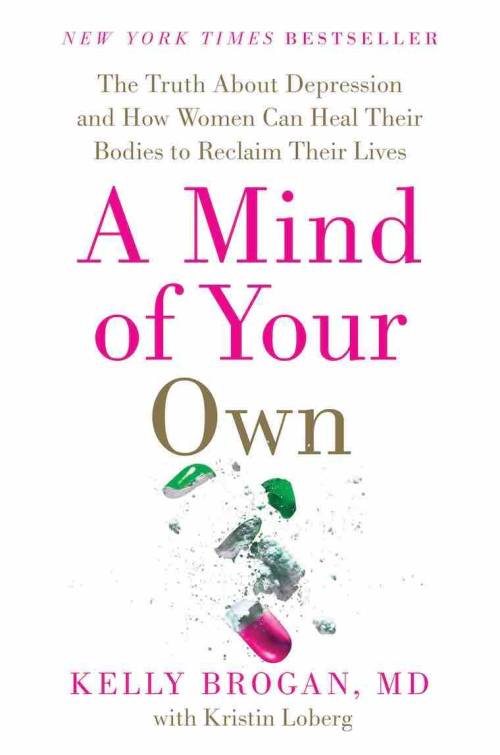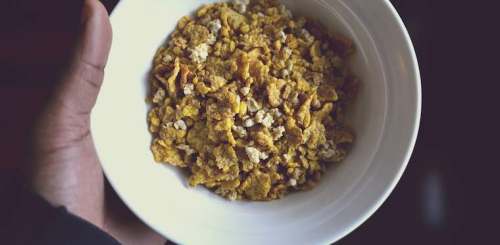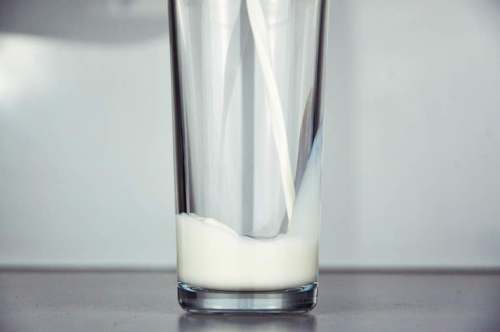Could the root cause of depression be in your gut—and not your brain?
In "A Mind of Your Own," Dr. Kelly Brogan claims that the cause of depression lies not in the brain, but in the gut—and offers tips for reversing inflammation.

By now, it shouldn’t be news to you that there’s a connection between the gut and the brain—doctors and nutritionists will both back this up. But a new book is making some bold claims about the matter, stating that gut inflammation is actually at the root of depression—and that the medical community’s current methods of treating the disease are all wrong.

“Not one valid study has proven that depression is caused by a chemical imbalance in the brain,” says Kelly Brogan, MD, a New York City-based holistic women’s health psychiatrist and author of the recently released A Mind of Your Own.
Yeah, I raised my eyebrows at that one too. But hear her out: Dr. Brogan says science is showing us that depression is primarily an inflammatory condition, like chronic diseases such as obesity, heart disease, cancer, and diabetes. (In other words, its origins aren’t neurological.) Her belief is that the most powerful path to the brain is through the gut—and therefore treating depression with antidepressants that only affect the brain is akin to taking Tylenol for a piece of glass in your foot.
Complicating matters further is the issue of leaky gut, which Dr. Brogan calls one of the “most villainous of biological threats.” When your gut is “leaking,” she explains, levels of LPS (lipopolysaccharides—endotoxins found in the outer membrane of Gram-negative bacteria like E. Coli) enter the bloodstream and can trespass the blood-brain barrier, which may then lead to inflammation in your brain—something else she links to depression.
Because of all this—and because she has firsthand witnessed the ineffectiveness of antidepressants among her patients—Dr. Brogan is adamant that lifestyle tweaks are significantly more effective in treating depression than medication. “In psychiatry, we always rush to manage symptoms” she says. “But this way, we miss the opportunity to understand potential reversible causes to that depression.”
Luckily, Dr. Brogan says that gut inflammation can be reversed with some simple diet and lifestyle shifts, all of which are sure to have a positive impact—whether you’re suffering from depression or not.
Read on for seven things Dr. Kelly Brogan says you should do to reduce gut inflammation—and, in turn, improve your mental health.

1. Avoid processed foods
This one’s a no-brainer, but it’s worth repeating. “The manipulation that comes with processing foods brings a whole host of unrecognizable ingredients to our immune system,” says Dr. Brogan. “This can cause your body to produce inflammation.” Bonus points if you chow down on these whole foods, which are said to actually improve brain function.

2. Eliminate dairy, gluten, and sugar from your diet
We now know that sugar face is a thing, dairy causes acne, and gluten can cause a slew of health problems. But there might be more to the story—Dr. Brogan calls these three the “big ticket items” when it comes to gut inflammation and depression. She notes that issues mainly come about when you eat these things in processed form (see #1 on this list), so don’t stress too much about eating that mango-banana smoothie bowl packed with fresh fruit for breakfast.

3. Eat plenty of natural fats
We repeat: Fat is not bad for you. In fact, stresses Dr. Brogan, omega-3s and omega-6s are actually critical for brain and immune function. She recommends eating plenty of those on the daily (think cold-water fish, eggs, and nuts), as well as monounsaturated fats (olive oil, avocado, and almonds) and even saturated fats (ghee, dark chocolate, and coconut oil). You can even work them into—gasp!—dessert.

4. Add probiotics and fermented foods to your diet
“Working with the trillions of bacteria that inhabit our gut and orchestrate our digestion is key,” says Dr. Brogan, who adds that probiotics and fermented foods boost the good gut bacteria that regulate our immune systems and brain neurotransmitters. And if you really want to go wild, try giving your home (or body!) a dose of probiotics too.

5. Meditate—like, regularly
Data shows meditating stimulates the expression of anti-inflammatory genes and helps stabilize blood sugar—in addition to seriously calming your brain. So Brogan recommends meditating daily, even if it’s just for a few minutes. (Pro tip: Do it before your workout.)

6. Get enough sleep
“Studies have shown that losing sleep results in daytime inflammation,” says Brogan. She suggests prioritizing a pre-midnight bedtime to ensure you don’t skimp on ZZZs. (Sleep pro Arianna Huffington would agree.) And if you’re having trouble snoozing? Well, that could be related to your gut health, too—in which case, you’ll really want to follow the advice of tip #4 and stock up on fermented foods (or at the very least, go gut-friendly with your breakfast).

7. Exercise at least three times a week
Exercise is nature’s antidepressant, according to Brogan: “It can be a biological insurance plan against the bodily effects of stress.” But most people don’t realize one of its many benefits (most notably with HIIT) is that it positively stimulates your mitochondria, which have a direct correlation with your mental health. So go on, find a workout you love and get physical—here’s a good place to start.
Knowing your gut type will help put you on the path to healing—here’s how to find out which one you’ve got. And to further prevent inflammation, read up on six inflammation-causing foods no one talks about and try these 22 healthy recipes made with turmeric (AKA the nutrition world’s anti-inflammatory superstar).
Sign Up for Our Daily Newsletter
Get all the latest in wellness, trends, food, fitness, beauty, and more delivered right to your inbox.
Got it, you've been added to our email list.










